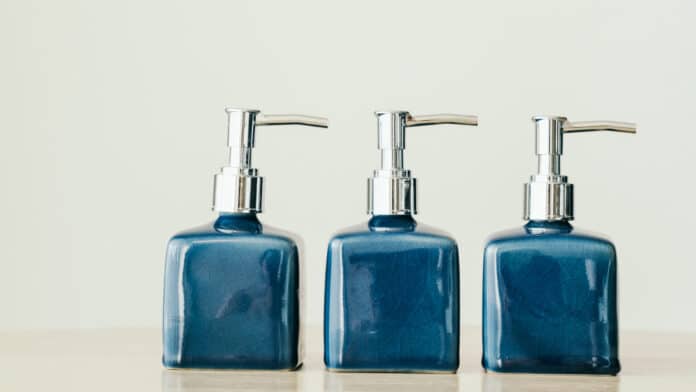In public restrooms, schools, and libraries, consumers are increasingly sharing items like shampoo and body wash, which lowers the cost of toiletries, reduces plastic waste, and lowers the danger of contracting infectious diseases.
According to a report by Thomas Kramer, a professor of marketing at the University of California, Riverside, sharing can also lead to unanticipated waste. His paper, published in the Journal of Marketing Research, states this.
Kramer and his co-authors looked at a number of studies that looked at how individuals behaved and thought when they shared items like college students’ plant food, hand sanitizers, and hotel toiletries.
The advantages are numerous:
1)Hotels spend less on toiletries.
2)Less plastic is produced.
3)We have a lower chance of catching dangerous diseases.
Kramer said, “Most of the studies show that people believe the product is less efficacious, meaning it doesn’t work as well when they share it with strangers rather than friends; then, in some studies, it shows that it leads to them using more to make up for that perceived low efficacy.”
Kramer, an associate dean of undergraduate programs for UCR’s School of Business, said, “One way to reduce wasteful use is by making consumers think they’re not sharing with strangers, but instead with family or friends. The second way is by increasing a person’s identification with the product, even when it is shared.”
The COVID-19 pandemic has made shared hand sanitizers quite common, which has increased the tendency to share goods with strangers. Single-use toiletries in plastic containers are prohibited in California, and similar restrictions are being considered for New York and Hawaii.
To lower the risk of skin cancer, nonprofit organizations are also working with Coppertone to set up communal sunscreen dispensers at public swimming pools, beaches, and parks.
Kramer expects that the report’s findings will help managers use shared products more effectively and efficiently while lowering expenses. While he understands that some products are shared, he thinks individuals shouldn’t abuse them.
Kramer said, “The UCR logo makes me identify with the hand sanitizer, so I no longer feel that it’s sharing with strangers because of my identification with UCR, and it will stop me from using too much.”
The plant food study demonstrated this behavior. College students were tasked with conducting an experiment that involved fertilizing plants using fertilizer from a common container. Individual college students who experimented used less fertilizer than was advised. However, they utilized more while working in teams with unfamiliar pupils.
These findings fascinate Kramer because they substantially impact business and program managers regarding costs and customer satisfaction even when they defy common sense (for example, using too much shampoo won’t make your hair cleaner).
Researchers said, “It doesn’t make sense, but it happens; it shouldn’t matter, but it does matter.”
Journal Reference:
- Lama Lteif, Lauren Block, etal. EXPRESS: The Influence of Shared Consumption on Product Efficacy Perceptions: The Detrimental Effect of Sharing with Strangers.Journal of Marketing Research.DOI: 10.1177/00222437231181137
